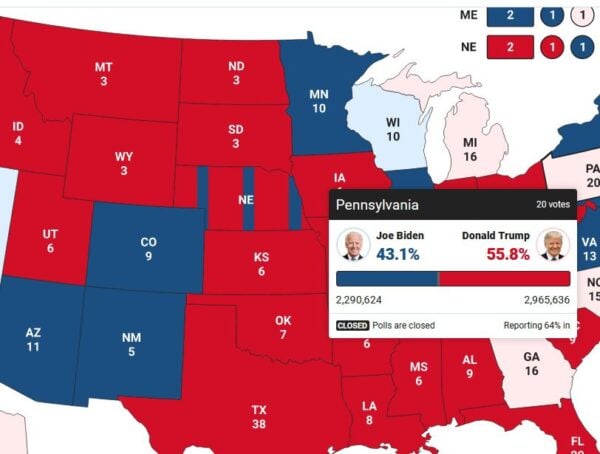Ten State Attorneys General Join Suit Against Pennsylvania Where Individuals Were Allowed to Vote Three Days After the Election

Ten state Attorneys General join the suit against the Pennsylvania court’s attempt to unlawfully change the Constitution.
Republican Attorneys General from 10 states joined together to file an amicus curiae brief in support of two lawsuits asking the U.S. Supreme Court to review Pennsylvania’s three-day extension to receive mail-in ballots.
The brief was filed Nov. 9 in support of Republican Party of Pennsylvania v. Boockvar and Scarnati v. Boockvar by the Attorney General of Missouri and joined by the Attorneys General of Alabama, Arkansas, Florida, Kentucky, Louisiana, Mississippi, South Carolina, South Dakota and Texas.
Both lawsuits challenge a decision made by the Pennsylvania Supreme Court in October mail-in ballots could be counted if they were received by Friday, Nov. 6…
…The Republican Attorneys General’s amicus brief argues the three-day ballot acceptance extension violates the U.S. Constitution elections clause, which states, “The Times, Places and Manner of holding Elections for Senators and Representatives, shall be prescribed in each State by the Legislature thereof; but the Congress may at any time by Law make or alter such Regulations, except as to the Places of chusing Senators.”
The Attorneys General said at a press conference announcing the amicus brief that the Pennsylvania legislature—and not the Pennsylvania Supreme Court—is the only body with the power to change election ballot rules.
It’s about time states around the union stand up for the American voter. When states like California changed their voter laws allowing the harvesting of ballots which led to enough Democrat Representative wins in 2018 to win the House, they injured all Americans.
This move by ten states adds additional weight to the seriousness of the case and the seriousness of a state independently making non-constitutional decisions to steal an election. Before the election the three liberal judges on the Supreme court all agreed with the unconstitutional Pennsylvania law but when Judge Roberts agreed with them, the ruling went back to the lower court since the Supreme Court’s vote ended in a tie. Judge Barrett declined to join the court due to her being new to the job and not having been engaged in the case.
If and when this goes back to the Supreme Court all nine justices will likely vote and the unconstitutionality of the attempted steal will be overturned. However, the remedy will be challenging. If the votes were not properly segregated, then another suit will likely ensue.
The battles begin.
No comments: